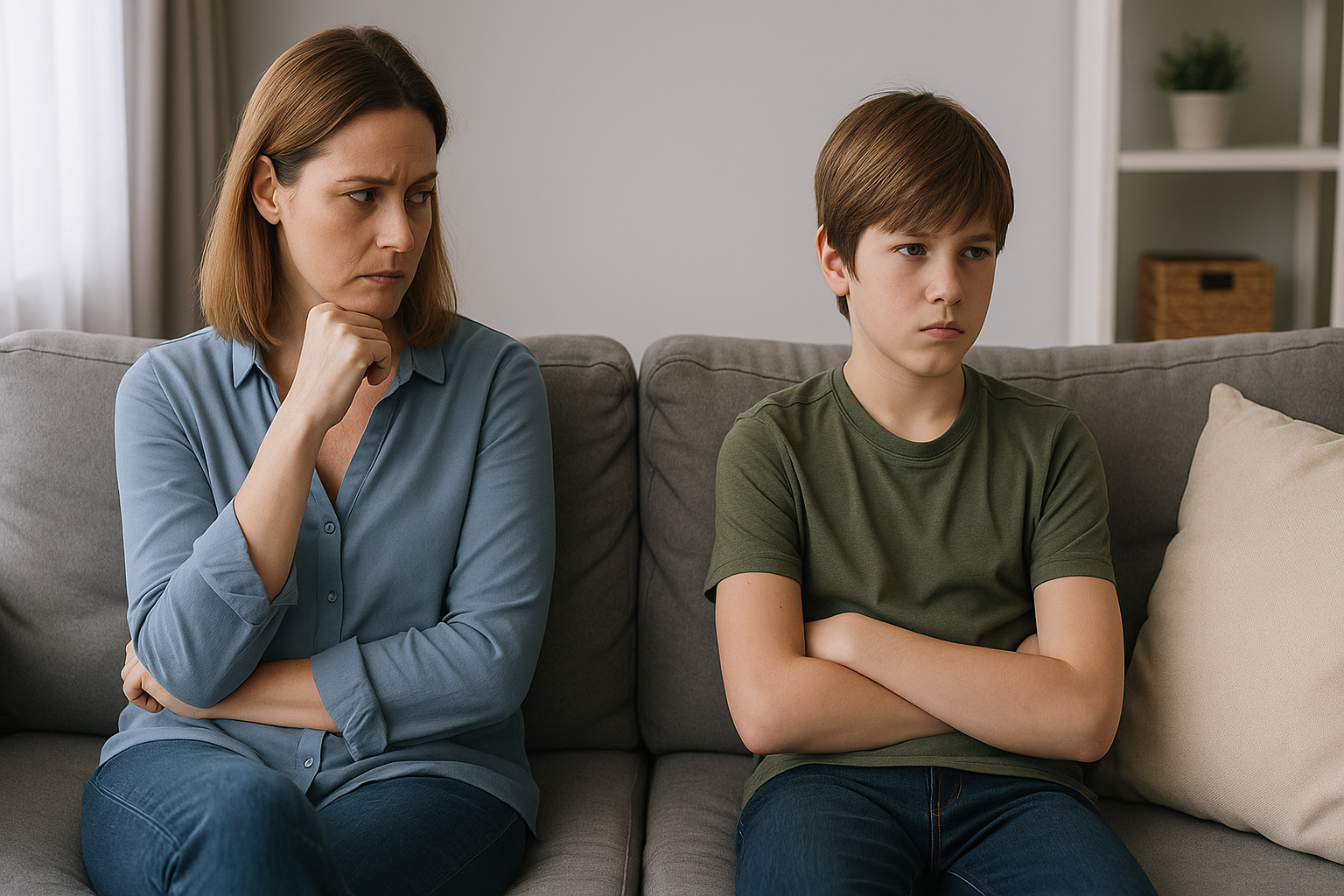Parenting is hard work. No one gets it perfect.
But there’s a big difference between a parent who’s figuring things out and one who was never really ready to take on the responsibility in the first place.
One of the clearest signs?
The messages children grow up hearing. Words matter, and when you hear the wrong ones again and again, they shape the way you see yourself and the world.
If these phrases were part of your childhood, chances are your parents weren’t fully equipped for the job.
1) “Stop crying or I’ll give you something to cry about”
This one still makes me cringe. It’s the classic way of shutting down a child’s emotions instead of teaching them how to process them.
When parents say this, they’re really saying: your feelings are inconvenient, and I’d rather punish them out of you than help you manage them.
The long-term effect? Kids grow up believing emotions are dangerous, and they either bottle everything up or explode when they can’t anymore.
Healthy parenting acknowledges that crying is communication.
Even now, when my son Elise (4) melts down after a long day, I remind myself that it’s not misbehavior—it’s an overflow.
2) “Because I said so”
Discipline without explanation is another red flag. Sure, sometimes kids test patience, and you don’t have the bandwidth to break down every rule.
Related Stories from The Artful Parent
But if “because I said so” is the default response, it teaches children that power—not reason—makes the rules.
Psychologists have long noted that authoritarian parenting produces compliance in the short term but damages trust and autonomy over time.
Children who never get explanations may grow up confused about asserting boundaries or resentful of authority altogether.
A simple swap—like “Here’s why we don’t do that” or “This rule keeps you safe”—goes a long way.
3) “You ruined everything”
If you ever heard this after spilling juice, interrupting an argument, or just being a kid, you were handed responsibility for adult emotions that weren’t yours to carry.
This is classic emotional burden-shifting. Instead of managing their own stress, parents make the child the scapegoat.
- Psychology says boomers who never joined social media typically have these 8 distinct personality traits - Global English Editing
- If you prefer hiking trails or regular walks to gym memberships, psychology links this to these 8 distinctive personality traits - Global English Editing
- 8 phrases only people who grew up poor recognize as code for “we can’t afford it right now” - Global English Editing
Kids internalize the message: I cause problems. I make life worse. I’m a disappointment.
That sticks. I’ve seen friends in adulthood struggle with constant guilt because of statements like this.
And it’s heartbreaking, because no child should be told they’re the reason things go wrong.
4) “I wish you were more like your sibling”

Comparisons cut deep. They pit kids against each other and teach them that love is conditional—given only when you perform like someone else.
Research backs this up: a 2010 study in the Journal of Family Psychology found that parental favoritism was strongly linked to depression and poor sibling relationships later in life.
Children don’t need to be carbon copies of each other. They need parents who see their individuality, not constant reminders that they’re falling short of some “better” model in the house.
5) “You’re so ungrateful”
Gratitude is important, but weaponizing it against kids is not the way to teach it.
Telling a child they’re ungrateful every time they express disappointment is really a way of silencing them.
Imagine a kid saying, “I don’t like broccoli,” and the response being, “You’re so ungrateful—we put food on the table!”
The lesson isn’t gratitude—it’s suppression. Kids grow up confused about whether they’re allowed to have preferences or needs at all.
It’s possible to both encourage gratitude and acknowledge feelings. “I know you don’t like broccoli, but I’m glad you’re trying a bite” validates while still teaching perspective.
6) “You were a mistake”
Few words hit harder than this. Some parents throw it out in anger, others let it slip during a fight, but either way—it’s devastating.
Children don’t get to choose to be here. To tell them they were a mistake is to saddle them with existential guilt for simply existing.
I don’t think most parents realize how deeply this sticks, but I’ve spoken to adults in their 30s and 40s who still feel unwanted because of this one phrase.
Even if resources are tight or life didn’t go as planned, children should never feel like they’re an accident. They deserve to feel chosen, full stop.
7) “You’ll never amount to anything”
And here’s the big one. Words that predict failure often become self-fulfilling.
As noted by Carol Dweck, the psychologist behind the “growth mindset” theory, kids internalize the beliefs their parents express.
If you’re told repeatedly you’ll never succeed, you begin to expect failure—and eventually, you stop trying altogether.
The irony is that many parents say this to “motivate” kids. But the effect is the opposite. Encouragement fuels effort. Condemnation fuels fear.
I think of my daughter Elise when she tries something new—whether it’s climbing at the playground or tracing letters.
If I told her “you can’t do it,” I’d be planting a seed of doubt she’d carry forever. Instead, I try: “You can’t do it yet.” That single word makes all the difference.
Final thoughts
If these words echo in your memory, you’re not alone. Many of us grew up with parents who didn’t have the tools, patience, or support they needed.
But recognizing these phrases for what they were—signs of unprepared parenting—is powerful. It helps us break the cycle.
We can choose to give our kids better: empathy instead of shame, guidance instead of silence, and encouragement instead of condemnation.
So here’s the question I keep asking myself as a dad: what words do I want my children to carry with them into adulthood?
Because whatever we repeat most often is what they’ll hear longest.



